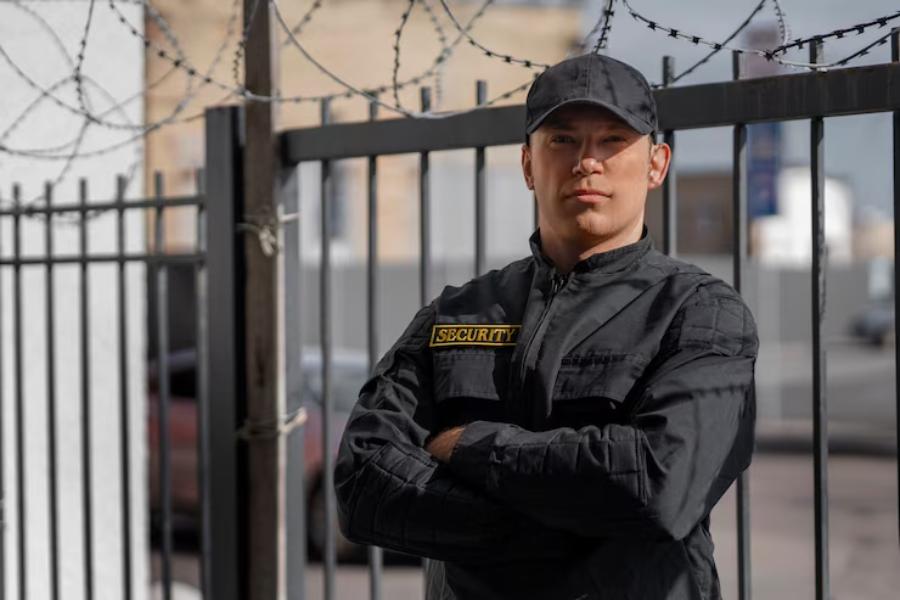The question “what role did the Los Angeles Police Department’s Mark Fuhrman play?” taps into one of the most controversial moments in American criminal justice history. Mark Fuhrman, an LAPD detective, became a central figure in the infamous O.J. Simpson murder trial. His involvement raised questions about police integrity, racial bias, and evidence handling, turning a homicide case into a national conversation on justice and race.
In 1994, when Nicole Brown Simpson and Ronald Goldman were found murdered, Mark Fuhrman was among the first officers on the scene. His role seemed straightforward—collecting evidence and supporting the prosecution. However, the discovery of racist remarks on past tapes, and allegations that he planted evidence, drastically altered the trial’s trajectory. As the defense unraveled Fuhrman’s credibility, the entire prosecution case came under intense scrutiny.
This article explores “what role did the Los Angeles Police Department’s Mark Fuhrman play?” in detail. We examine his direct actions in the investigation, the implications of his testimony, and how his past became a weapon for the defense. Whether you’re a law student, true crime enthusiast, or someone exploring systemic issues in law enforcement, understanding Fuhrman’s role offers deep insights into how individuals can influence justice—positively or destructively.
What role did the Los Angeles Police Department’s Mark Fuhrman play?
Mark Fuhrman played a crucial role in the O.J. Simpson case as an LAPD detective who helped gather key evidence. However, his credibility was later damaged by racist remarks and allegations of planting evidence, which greatly influenced the trial’s outcome.
The Foundation of the Case – Who Was Mark Fuhrman and Why Was He Involved?
Mark Fuhrman was a veteran detective with the Los Angeles Police Department, assigned to the West LA division in the early 1990s. He gained national attention when he became involved in the 1994 double homicide of Nicole Brown Simpson and Ronald Goldman. As one of the first officers at the scene, Fuhrman played a central role in the investigation by discovering a bloodied glove at O.J. Simpson’s estate—evidence that matched a glove found at the crime scene. Initially, this seemed like a major breakthrough for the prosecution.
However, the question “what role did the Los Angeles Police Department’s Mark Fuhrman play?” soon took on a darker tone. The defense uncovered Fuhrman’s disturbing history of racist remarks and alleged misconduct. During the trial, Fuhrman denied using racial slurs under oath, only to be exposed by taped recordings. This revelation not only destroyed his credibility but also damaged the prosecution’s case. Ironically, the detective who once appeared to hold the strongest evidence became one of the biggest liabilities in the courtroom.
How Did Fuhrman’s Testimony Affect the Trial?
Mark Fuhrman’s courtroom testimony was expected to strengthen the prosecution’s case against O.J. Simpson—but it ended up having the opposite effect. His statements, and the fallout that followed, shifted the entire direction of the trial.
Turning Point in the Courtroom
When Mark Fuhrman took the witness stand during the O.J. Simpson trial, prosecutors believed his testimony would reinforce the connection between Simpson and the murders. His discovery of the bloody glove at Simpson’s estate was considered a crucial piece of evidence. However, the courtroom dynamic shifted quickly as the defense began dissecting his background and motives, casting doubt on his reliability and objectivity.
Cross-Examination Fallout
Under intense questioning from defense attorney F. Lee Bailey, Fuhrman was asked if he had ever used racial slurs. He unequivocally denied it. This response would prove disastrous. Soon after, previously recorded tapes surfaced, revealing Fuhrman using highly offensive racial language and making disturbing claims about police brutality. His denial under oath led to a perjury charge and severely damaged the credibility of the LAPD’s investigative work in the case.
Impact on Jury Perception
The jury, already skeptical of the LAPD amid the city’s history of racial tension, saw Fuhrman’s actions as potentially malicious. His dishonesty fueled speculation that he may have planted or tampered with evidence to frame Simpson, undermining the prosecution’s entire narrative.
Media and Public Reaction
The media heavily publicized Fuhrman’s past and court performance, which amplified public outrage and deepened concerns about racial bias in law enforcement. He became a symbol of institutional racism.
Fuhrman’s Post-Trial Consequences
Following the trial, Fuhrman pleaded no contest to perjury and retired from the LAPD. Though he later became an author and commentator, the controversy surrounding his role in the trial continues to follow him.
What Evidence Was Collected by Mark Fuhrman?
Mark Fuhrman played a pivotal role in the initial evidence collection phase of the O.J. Simpson murder investigation. As one of the first detectives to arrive at both the crime scene and Simpson’s Brentwood estate, his discoveries formed the core of the prosecution’s argument. However, the evidence he handled later came under intense scrutiny due to concerns over credibility and possible misconduct.
Below is a breakdown of the key pieces of evidence Fuhrman collected:
- The Bloody Glove at Simpson’s Estate: Fuhrman discovered a blood-soaked glove near O.J. Simpson’s guesthouse, which matched one found at the murder scene. This was considered a crucial link between Simpson and the crime.
- Blood Traces on Simpson’s Ford Bronco: He reported visible blood stains in and around Simpson’s white Bronco, believed to be consistent with the timeline of the murders.
- Bloody Socks in Simpson’s Bedroom: Socks containing Nicole Brown Simpson’s blood were found in Simpson’s bedroom, further implicating him.
- Crime Scene Documentation: Fuhrman helped draft the initial crime scene reports, noting evidence locations and scene conditions.
- Photographic Evidence: He took several photographs of the crime scene and key items, which were later presented in court.
- Chain of Custody Concerns: Allegations arose suggesting Fuhrman may have mishandled or planted evidence, casting doubt on the investigation’s integrity.
Why Was Mark Fuhrman’s Role So Controversial?
Fuhrman’s role became controversial for several reasons. First, he represented systemic flaws within the LAPD at a time when the department was already under fire for racial discrimination. His use of racial slurs—exposed through past interview tapes—became a major point of contention in court. The fact that he lied about it under oath didn’t just taint his testimony; it jeopardized the entire prosecution.
Fuhrman was seen as a symbol of racial bias in law enforcement, particularly in a city still healing from the 1992 Rodney King riots. The defense argued that Fuhrman, with a documented history of racist behavior, may have planted the glove to frame Simpson. While there was no conclusive proof of this, the doubt alone had a powerful psychological impact on the jury.
Moreover, Fuhrman’s actions highlighted how individual behavior can erode public trust. His involvement led to broader discussions about police accountability, forensic evidence standards, and racial injustice. Ultimately, “what role did the Los Angeles Police Department’s Mark Fuhrman play?” is not just a legal question—it’s a cultural one with long-lasting implications.
When Did Mark Fuhrman’s Image Begin to Crumble?
Mark Fuhrman’s reputation, once seen as that of a dedicated and methodical detective, began to unravel as the O.J. Simpson trial progressed. His transformation from respected officer to controversial figure was driven by a series of revelations that shook both the courtroom and the public.
- Early Hero to Public Villain: At the beginning of the investigation, Fuhrman was considered a committed and competent LAPD detective. However, his image began to deteriorate when allegations of racism surfaced and later proved credible.
- The “Fuhrman Tapes” Revelation: A crucial turning point came with the release of old audio recordings—now known as the “Fuhrman Tapes.” These tapes captured Fuhrman using racial slurs and describing violent conduct toward suspects, exposing a deeply troubling mindset.
- Perjury and Prosecution Fallout: During the trial, Fuhrman was asked under oath whether he had ever used racial slurs. He denied it. When the tapes surfaced, it became clear he had lied, leading to a perjury charge that severely compromised the prosecution’s case.
- Influence on Verdict: Several jurors later admitted that Fuhrman’s dishonesty and exposed racism played a significant role in shaping their verdict, as it cast doubt on all the evidence presented by the LAPD.
- Ongoing Legacy: Fuhrman remains a cautionary symbol of how personal misconduct can derail an entire criminal case and damage public trust in law enforcement.
In Closing
To fully grasp what role did the Los Angeles Police Department’s Mark Fuhrman play?, one must consider his actions from legal, ethical, and societal angles. While Fuhrman initially played a key role by gathering evidence that connected O.J. Simpson to the crime, his credibility later collapsed due to revelations of racism and perjury. This shift undermined the prosecution’s case and shifted public perception of the LAPD. The O.J. Simpson trial became more than a murder trial—it was a national reckoning on race, justice, and police conduct. Fuhrman’s actions exposed the dangers of bias within law enforcement and serve as a lasting reminder of how personal prejudice can compromise public trust and reshape the outcome of justice.
FAQ’s
Was Mark Fuhrman fired from the LAPD?
No, Mark Fuhrman was not fired. He chose to retire from the LAPD shortly after the O.J. Simpson trial, amid the fallout from the perjury scandal that severely damaged his credibility.
Did Fuhrman plant evidence in the O.J. case?
There is no concrete or legal proof that Fuhrman planted evidence. However, the defense successfully used this theory to create reasonable doubt and challenge the integrity of the investigation.
What were the Fuhrman tapes?
The Fuhrman tapes were previously recorded interviews where he used racial slurs and spoke casually about police brutality, ultimately becoming key evidence in discrediting him during the trial.
Did Fuhrman face jail time for perjury?
Although Fuhrman was charged with perjury after lying under oath, he pled no contest and avoided jail time. Still, the conviction severely tarnished his law enforcement career.
What is Fuhrman doing now?
After leaving the LAPD, Mark Fuhrman transitioned into media work. He became a crime novelist and legal commentator, frequently appearing on Fox News to discuss high-profile cases.





Leave a Reply